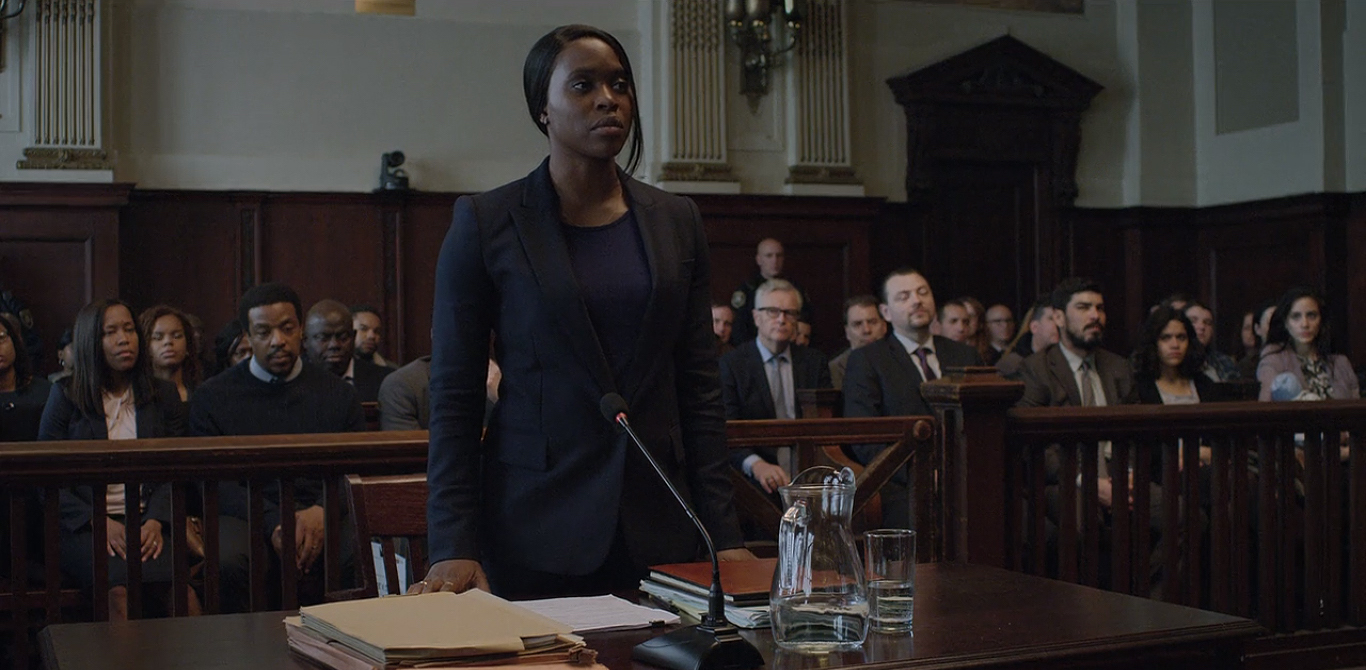‘Seven Seconds’ Is an American Story of Damage and Recovery
Gritty Crime Drama Runs on Fuel of Racial, Cultural Tensions

Netflix miniseries Seven Seconds is a gritty crime-drama with an engine that runs on the highly combustible fuel of racial and cultural tensions in America — between white and black Americans and between the African-American community and the police. Based on the acclaimed Russian film The Major, Seven Seconds’ 10-episode arc takes place in New Jersey and begins with the hit-and-run death of an African-American teenager. A distracted driver swerves and collides with an unseen object on a remote, snowy road. The driver stops and gets out of the car. He finds a bicycle under his tires, and two boots in the snow beyond the vehicle near a massive bloodstain spread across a snowbank that blocks the yet-unseen victim.
The plot thickens when the stunned driver, police officer Pete Jablonski (Beau Knapp), calls his supervising officer, Mike DiAngelo (David Lyons), for instruction. DiAngelo arrives at the scene with two other officers from his task force. After seeing that the casualty is an African-American teenager, he makes the executive decision to cover up the crime, fearing that Jablonski, a white cop, will be crucified for killing a black teen, even if by accident. The victim, Brenton Butler, is left for dead; the cops expunge any visible evidence and leave the scene. When Brenton’s body is found that evening, he’s taken to the ICU, barely alive after bleeding profusely for several hours in freezing temperatures. He doesn’t survive, turning the hit-and-run into a murder. As the show unfolds, Brenton’s grieving family (and the local community) clamor for resolution to the case and justice for whoever hit Brenton and left him to die on the side of the road.
Detective Joe Rinaldi (Michael Mosley) and public defender K.J. Harper (Clare-Hope Ashitey) are assigned to the case; they have few leads, and are inundated with pressure from the community to make Brenton’s death a priority — as well as from the police force either to pin the crime on a local drunk with prior convictions or to blow off the case as a boon: one fewer gang-affiliated teen on the street. But Jablonski, who recently suffered the devastation of a stillborn child, is haunted by his part in Brenton’s death, and secrets start to ooze from the cracks in the police team’s united front. Seven Seconds stays relatively unpredictable in a narrative universe of limited realistic options, and the culmination of the story invites audiences to consider the ideas of criminal and social justice, penalty, and restitution.
The series also makes a valiant effort to avoid stereotypes in its illustration of the real and pressing problems of racial tension in diverse communities, but there are some ham-fisted moments of dialogue and posturing, mostly from the “Jersey Bro” police force, whose behavior is Jerry Springer–esque in its worst moments. Generally, however, the struggle is captivating and the characters are believably unlikeable in the face of a situation rotten with fear, racism, anger, and grief. Harper is an unapologetic alcoholic; Rinaldi has replaced his estranged family with geriatric, special-needs dogs; the Butler family, despite being upstanding members of the community, is driven to desperate measures in the wake of Brenton’s death; and the police are violent, prejudiced, and self-serving.
Steep consequences for each character unfold in ugly detail, offering a grim look at loss and powerlessness within a criminal-justice system too invested in a starkly black-and-white view of the community to be unbiased. An intriguing thriller knee-deep in the filth of racism, classism, poverty, sexism, and corruption, Seven Seconds offers a genuinely American story of damage and recovery with the reminder that despair disregards the human-conceived lines of race and economic status.



